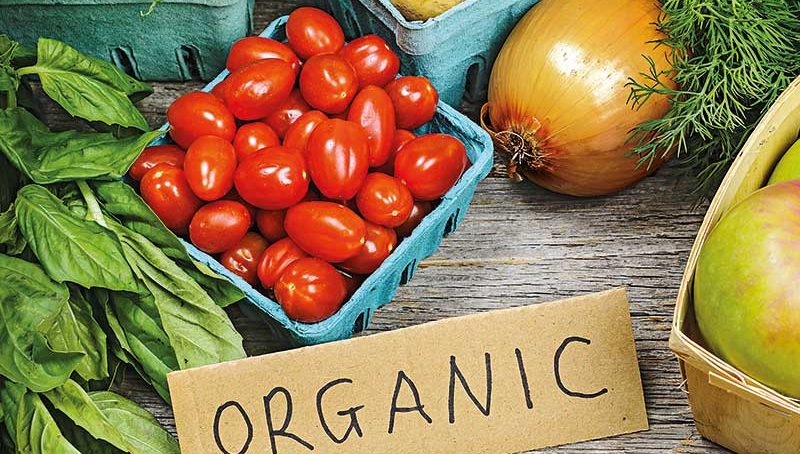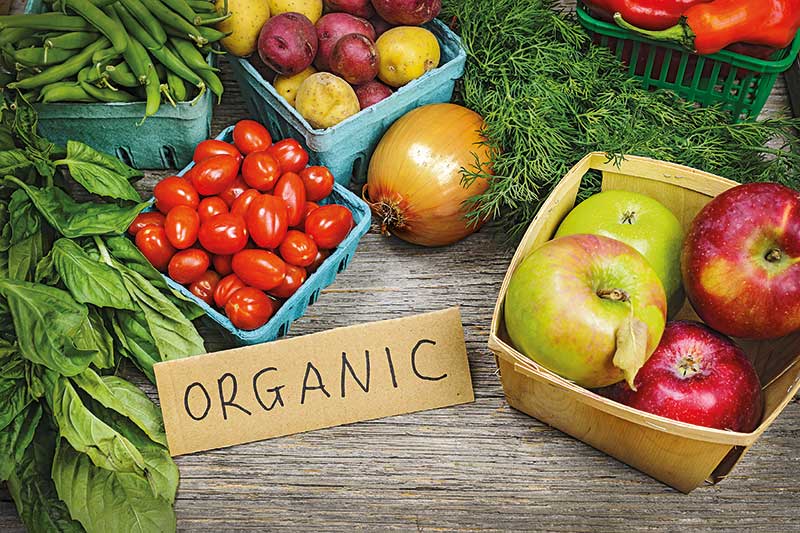To learn more about what’s making waves across the Middle East market, HN spoke to four of the country’s longest-standing and most prominent providers of organic products
ORGANIC FOOD TRENDS
Driven by a simple passion for real food, Biomass has been farming organically since 2007, producing a growing range of certified products, as the company’s co-founder, Mario Massoud, explained. Located in Batroun, the firm entered into collaborative efforts with certified organic farmers and today, the network includes 42 producers, farming across Lebanon. “Certified and traceable, Biomass fully abides by European regulations for organic farming and their partners are regularly monitored and controlled,” Massoud explained.
The difficulties
Turning to the obstacles Biomass has to contend with, Massoud continued, “Some of the challenges we face as a brand pertain to lack of government subsidies or support, coupled with low levels of individual awareness about what organic really constitutes, which drives further skepticism related to the authenticity of the products sold.” Massoud added that the situation allows “just about anyone” to promote a product as organic, without it being subject to official verification, which creates tremendous confusion for consumers. “It also allows the parties making false claims to remain in operation,” he noted. “As a result, brands like ours suffer.”
Massoud also acknowledged that organic products are inevitably more expensive than non-organic products in the same category. This, he said, is due to the fact the number of organic farms in operation remains small, yielding a harvest of equal volume. “Also, the problem with organic farming is that the produce cannot fight pests and other diseases compared to conventional farming,” he added. “Also, when it comes to harvesting the produce, all the plants are hand-picked, in turn, raising overheads.” He noted that the packaging of the products offered further increases overheads, resulting in a high-cost value chain.
A New Earth is an organic and eco-living store that has been operating in Lebanon since 2009. Tracking the market’s development, managing partner, Sabine Kassouf said, “We were the first comprehensive organic store in Lebanon to offer consumers premium quality items. At that time, we started importing organic baby food, personal care items and eco-friendly household products. We were also the first to introduce the superfood products to the country. By ‘super-powders’, I mean concentrates, such as spirulina, acai, baobab and certain types of mushrooms.” Kassouf added that not only are these concentrates healthy, they’re also used to enhance the taste of certain foods. “This is why several innovative chefs are using them to create delicious little masterpieces,” she said.
Hot trends
Committed to keeping up to date on what the future has in store, A New Earth’s co-founders attend a variety of annual European fairs throughout the year. Commenting, Kassouf said, “Lately, we’ve been amazed at the diversity of new trends emerging within the sector. In particular, we’ve noticed that cricket and insect flours are trending, while plant-based protein options are multiplying.” She added that though veganism remains a hot topic, the impact of the ‘plant-based diet’ is rising, because it is more achievable than a vegetarian or vegan diet. “Other products set to make a splash include milk-free ice cream, gluten-free breads, biscuits free from nuts, eggs and even flour,” she said.
Several products are now also being sought out by consumers for their healing properties, with kimchi, pickles, sauerkraut, tempeh and kefir among those in demand. “One particularly exciting and promising development for the region is a growing global trend that’s driving Middle Eastern cuisine to the forefront,” Kassouf explained. “Persian, Moroccan, Syrian and Lebanese influences are topping the list, with spices like harissa, cardamom and thyme making their way onto more menus, as well as dishes such as shakshuka and grilled halloumi.” Remaining relevant and developing a strategy for expansion are key focuses for any business, including those in the organic segment. Nour Melhem, operations manager of Live Organic, a family-owned business that has been promoting the organic lifestyle since 2011, outlined some of the decisions that had proved necessary since its launch. “The company first began sourcing its products from local organic farmers, which, after some time, proved difficult for a number of reasons,” she said. “At that point, we realized that if we were to grow as an organic company in Lebanon, we’d need to change our business models.” As a consequence, the firm contracted several international suppliers from Central Asia to Canada.
On the subject of pricing, she explained that while organic products are predictably more expensive, importing them increases these costs. “However, the market has definitely grown over the past couple of years due to increased demand. Consequently, priuces have decreased to a more affordable degree, especially for us. What’s also interesting is the fact that a new and young breed of consumers has emerged – one that’s well-informed about organic food and ready to pay top-dollar prices to get their way. This trend is not only encouraging, but will undoubtedly play an important role in moving the local industry forward.”
Having garnered a host of local, regional and international awards, Zejd, founded and operated by Youssef Fares, offers people around the world some of Lebanon’s best extra virgin olive oil.
“The local and regional organic market remains a somewhat small, niche industry,” Fares acknowledged. “You have to keep in mind that the industry is still quite young. Admittedly, when launched, it was expected to grow significantly. However, when it comes to both local and imported products, these remain fairly expensive, which hinders further growth.” He added that on the positive side, consumption of a variety of these products is rising, amid higher levels of awareness and concerns related to health.
“It is a fact that the products’ higher price points when compared to others that are non-organic, but similar and in the same category, makes them unaffordable to some consumers,” he admitted. “But on the other hand, organic products have become commonplace and widely available in Europe due to their lower price points, which have been facilitated by a well-established production industry.” Fares explained that in Lebanon there is only one certification body. He described the fee to acquire a certificate as “exorbitant”, which puts it beyond the reach of most looking to break into the market.
Asked specifically about the brand, Fares said he believes that the quality of the terroir is what distinguishes Zejd from others. With the line first certified organic 14 years ago, the founder and his team have had plenty of time to fine-tune the process and obtain the best results from the olives they grow. The result is a raft of outstanding products recognized and embraced by both global consumers and culinary communities alike. Today, the company’s products are shipped to the US, Europe and the Far East, as they are targeted to the retail markets.
Fares explained that in terms of sales, the company is employing the retail rather than the wholesale model, since that gives them greater ability to be competitive. “If we were to adopt a wholesale system, we would have to significantly lower our prices to remain competitive,” he said. “Locally however, we are selling wholesale to restaurant chains and supermarkets, although these remain the exception. Until the cost of acquiring certification and access to organic agricultural fertilizers becomes more financially feasible, it will remain virtually impossible for smaller-scale farmers to enter and grow in the market.”




















